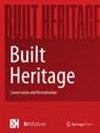From a grand hotel to an urban symbol: the Astor Hotel in old and new Tianjin
Q1 Arts and Humanities
引用次数: 0
Abstract
This article examines the enduring iconicity, multifaceted functions, and changing meanings of the Astor Hotel in Tianjin—one of the first international hotels in modern China—from the mid-19th century to the 21st century. Originally built more than 150 years ago, the Astor Hotel still stands exactly where it did in the former British Concession in Tianjin. This hotel was not only a venue boasting Tianjin’s most expensive accommodations but also a crucial site where politics, technology, economics, social, and cultural changes intersected and developed in its treaty port incarnation. Moreover, the expansion of the Astor Hotel evolved along with the development of Tianjin from a hypercolonial city to a Chinese-run metropolis. Shortly after the Communist Revolution in China, its ownership was overtaken by the Tianjin Municipal Government. Following a sequence of major renovations and commercial relaunches in the 1990s, the Astor Hotel was restored and reconstructed as an emblem of Tianjin’s historical status as an international and cosmopolitan city in China. Both continuity and changes will be emphasised in the discussion of the Astor Hotel’s history, as well as its multiple functions and shifting symbolic significance.从豪华酒店到城市标志:新老天津的阿斯特酒店
天津阿斯特酒店是中国近代最早的国际酒店之一,本文探讨了从 19 世纪中叶到 21 世纪,阿斯特酒店经久不衰的标志性建筑、多方面的功能以及不断变化的意义。阿斯特饭店始建于 150 多年前,至今仍矗立在原天津英租界的原址上。这座酒店不仅是天津最昂贵的住宿场所,也是条约港时期政治、技术、经济、社会和文化变革交汇发展的重要场所。此外,阿斯特饭店的扩张也伴随着天津从一个超殖民城市发展成为一个中国人经营的大都市。中国共产党革命后不久,天津市政府接管了酒店的所有权。20 世纪 90 年代,经过一系列重大翻修和商业重新启动,阿斯特酒店得以恢复和重建,成为天津作为中国国际化大都市历史地位的象征。在讨论阿斯特酒店的历史及其多重功能和不断变化的象征意义时,将强调其连续性和变化性。
本文章由计算机程序翻译,如有差异,请以英文原文为准。
求助全文
约1分钟内获得全文
求助全文

 求助内容:
求助内容: 应助结果提醒方式:
应助结果提醒方式:


